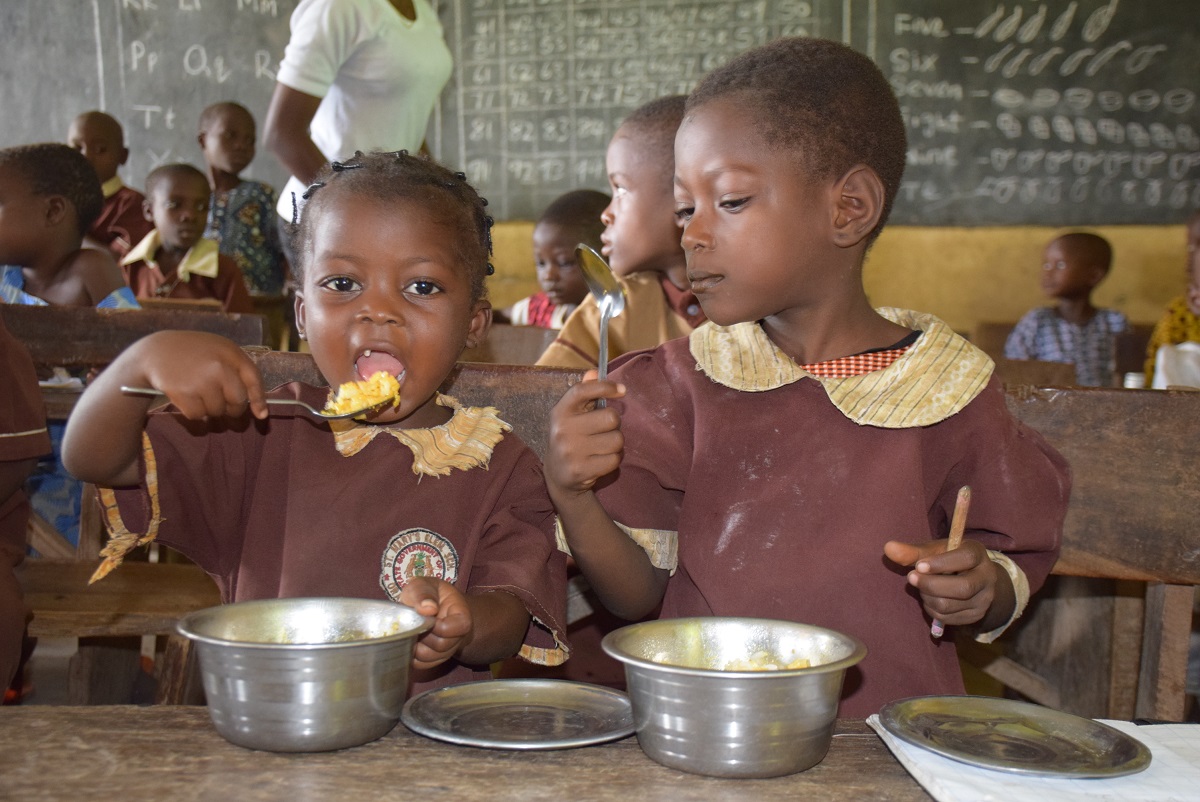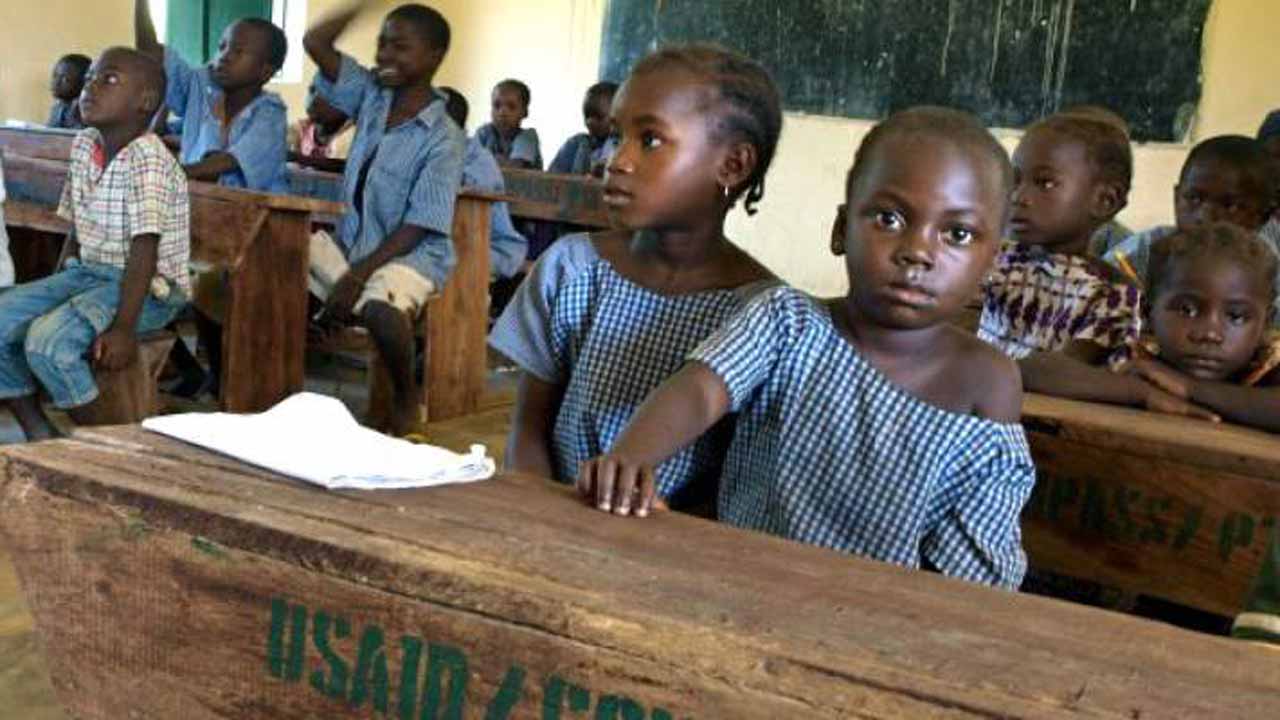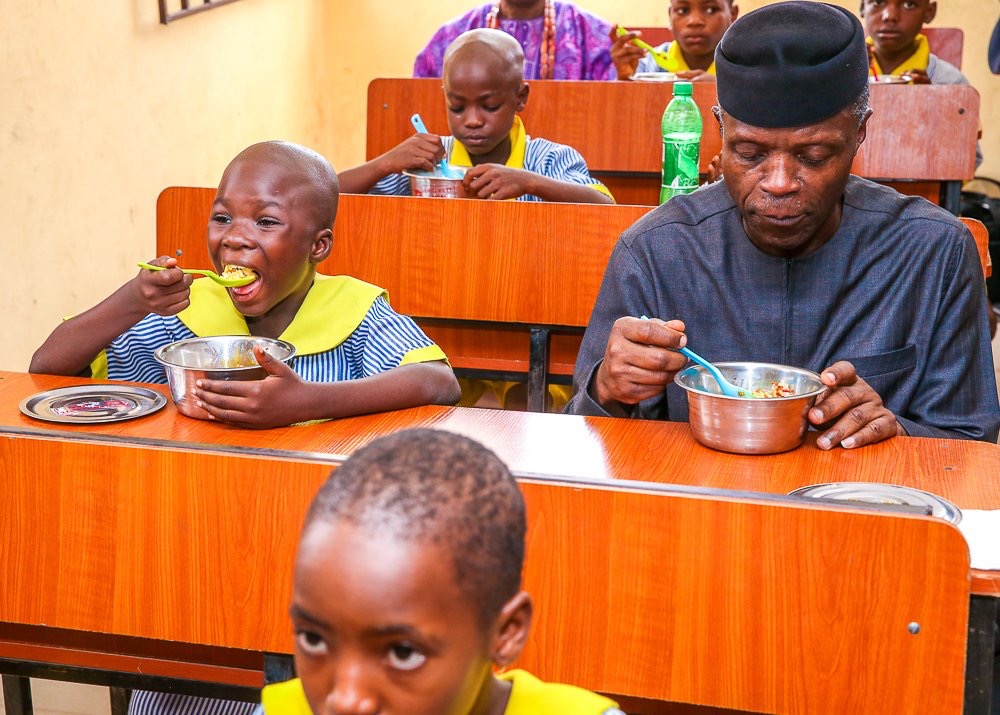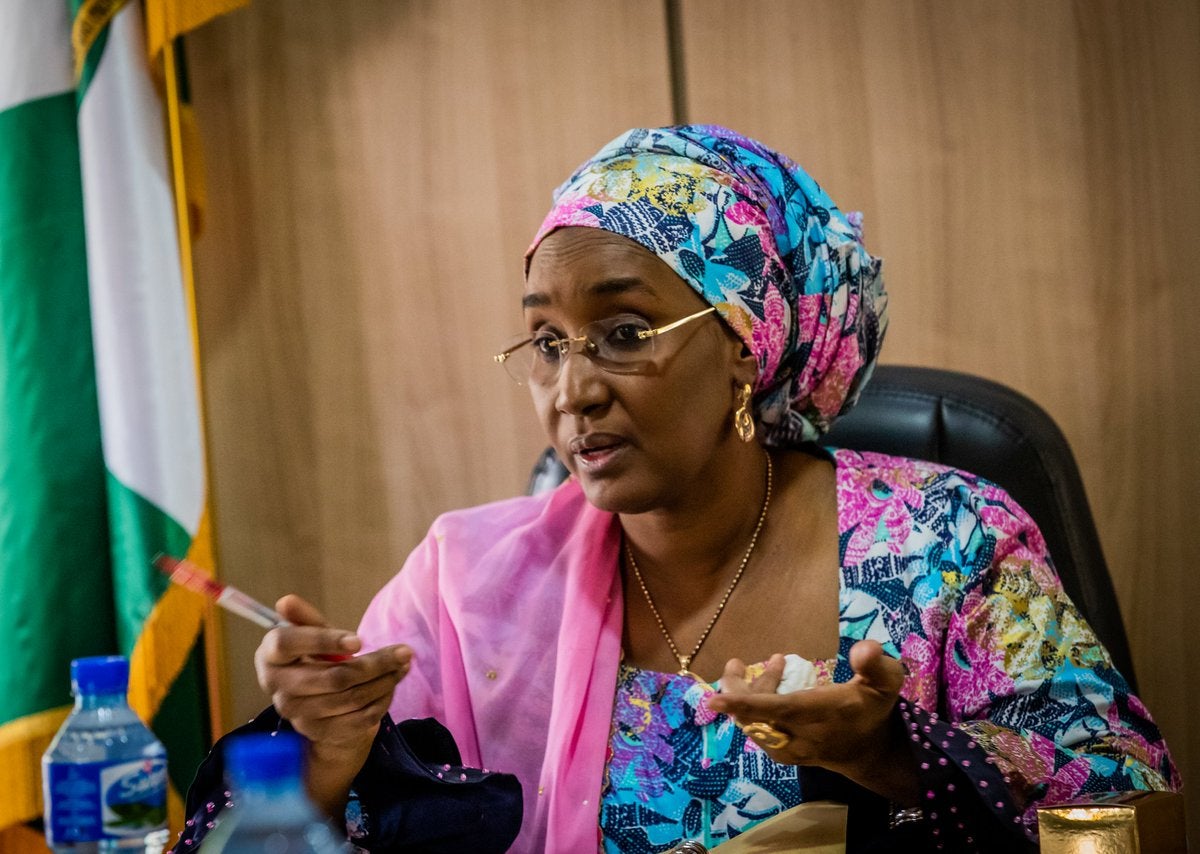A Federal High Court, Abuja has ordered Dr Betta Edu, the Minister of Humanitarian Affairs, Disaster Management and Social Development, to release details of how the sum of N535.8 million was expended on feeding of school children during COVID-19 lockdown.
Justice Nkeonye Maha, in a judgment, directed the minister and the ministry to furnish a civil society group with parts of the information sought in line with Section 25(1) of the Freedom of Information (FOI) Act, 2011.
Justice Maha held that the minister’s failure to respond to the group’s letter dated Aug. 6, 2020 or even give reason for the refusal to respond to the request as prescribed under the FOI Act contravened the provisions of Section 4(a) and (b) of the act.
“In view of all the matters before me and flowing from the objectives of the FOI Act 2011, the court hereby orders the 1st and 2nd defendants, in line with Section 25(1) of the FOI Act, to furnish the plaintiff with the information sought in Reliefs 3(a), (b), (c), (d),” she declared.
The judge also ordered the minister to comply with the orders of the court within 21 days upon receipt of the orders.
She, however, refused to grant “Reliefs 3(e), (f) and (g) of the plaintiff.”
The News Agency of Nigeria (NAN) reports that the Incorporated Trustees of Kingdom Human Rights Foundation International had filed the suit marked: FHC/ABJ/CS/1162/2020 following alleged refusal of the then Minister, Hajia Sadiya Umar-Farouq, and her ministry to respond to the information sought.
Umar-Farouq was the minister under the Muhammadu Buhari-led government.
The group alleged that independent investigation and information available to it “revealed that the so-called modified and implemented school feeding programme during lockdown against coronavirus pandemic was a scam, cover-up and well-articulated fiction to embezzle public funds.”
It said that the development was contrary to the statement made by Umar-Farouq during the taskforce briefing on COVID-19 on Aug. 3, 2020.
Therefore, in the originating summons, the group sued the minister, the ministry and the Presidential Taskforce on COVID-19 as 1st, 2nd and 3rd defendants respectively.
Also joined in the suit were the Secretary to the Government of the Federation (SGF) and Independent Corrupt Practice and other related offences Commission (ICPC) as 4th and 5th defendants.
The group sought an order of mandamus compelling the 1st defendant (minister) to immediately release and make available to it all the information and documents requested in its application letter to wit:
“a. Details, accompanied with documentary evidence of how the N523,273,800 million was spent on school feeding programme during the COVID-19 LOCKDOWN in three states following presidential directive as disclosed to Nigerians by the 1st defendant during the Presidential Taskforce on Covid-19 briefing of Monday, 3rd August, 2020 in Abuja.
“b. Details with the aid of documentary evidence disclosing how the said N523,273,800 million was dispatched/distributed to the 124,589 households whom the 1st defendant claimed received take-home rations valued at N4,200. 00 to wit:”In the FCT, 29,609 households were impacted; 37,589 households in Lagos and 60,391 in Ogun, making a total of 124,589 households impacted between May 14, and July 6. ‘if 124,589 households received take-home rations valued at N4,200, the amount will be N523,273,800.’
“¢. Facts with the aid of documentary evidence, disclosing whether the 124,589 households whom the 1st defendant claimed received take-home rations valued at N4,200 received it in cash or if they received food items.
“d. If the 124,589 households whom the 1st defendant claimed received take-home rations valued at N4,200 received it by cash, facts with the aid of documentary evidence, including state by state photographs of those distributing and those receiving, disclosing whether they were given cash of N4,200 or food items valued N4,200.
“e. Should the 1st defendant claim that the 124,589 households received N4,200 by bank transfer, facts disclosing that the N4,200 was paid into their various bank accounts, including disclosing the bank account numbers of the 124,589 households whom the 1st defendant claimed received take-home rations valued at 4,200 each.
“f. Phone numbers of the 124,589 households whom the 1st defendant claimed received take-home rations valued at N4,200 or the phone numbers of their heads of family.
“g. State by state addresses of the 124,589 households whom the 1st defendant claimed received take-home rations valued at N4,200 to enable the plaintiff immediately confirm if they received the items.”
The group said it instituted the suit in the overall public interest and promotion of rule of law, accountability, probity transparency and strengthening constitutional democracy and good governance.
Responding the minister and the ministry, in their counter affidavit, argued that they did not refuse to provide the information sought as the information had been disclosed in their counter affidavit.
They also argued that information sought by the plaintiff which bordered on addresses and phone numbers of beneficiaries were personal information and that such disclosure was exempted under Section 14 of FOI Act.
They corrected that the total sum was N535, 873, 800 for 127, 789 households and not 523, 273, 800 for 124, 589 as alleged by the group.
They, however, said that they did not disburse cash but food items.
Delivering the judgment, Justice Maha struck out the names of 3rd, 4th, and 5th defendants’ from the suit, the plaintiff, having failed to disclose a cause of action against them.
The judge, in the decision delivered on Oct. 30 but the certified true copy (CTC) sighted on Wednesday, said the suit succeeded in part.
She agreed with the argument of the minister and the ministry that the 127, 789 households had not consented to the disclosure of their personal details as required by law.
She also refused to grant the request for the release of bank account numbers of the beneficiaries, having stated that no cash was disbursed.
But Justice Maha held that there was nothing before the court to show how the said food items were disbursed and the defendants had not proved nor shown how the said N535,873,800 was distributed to the beneficiaries.
“The 1st and 2nd defendants merely stated facts without proof of how the said sum was allegedly spent.
“All these lapses give room for conjecture and speculation, and the court does not act on speculation; rather on material evidence placed before it,” she said, citing Section 167 of the Evidence Act.
She, therefore, granted Reliefs (a), (b), (c), and (d) above but declined to grant Reliefs (e), (f) and (g).




